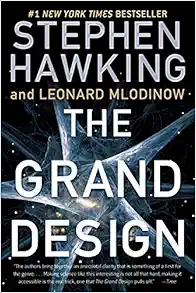
You’ve heard atheistic naturalists and Christian Darwinists talk about the “God of the Gaps,” right?
= Every time it seems like something in the universe looks designed — whether it is the laws of mathematics or the complexity of nervous systems — “science” will come along and show that, sure enough, it all just randomly happened that way.
“The universe can and will create itself from nothing,” as Stephen Hawking and Leonard Mlodinow argued in The Grand Design. (Note that it is called The Grand Design even though it argues the opposite. )
So, in the atheistic naturalist’s and the Christian Darwinists’ view, anyone who doubts that Everything Comes About by Accident from Nothing” is undermining people’s faith.
Presumably, people will find out the truth and then they will no longer believe in the God Who Makes No Difference and they will stop going to … Churches No One Goes To Any More Anyway.
Here, apologist Frank Turek of CrossExamined talks about the point of view they all seem to prefer, “Scientism of the Gaps”:
To summarize Scientism of the Gaps: No mountain too high, no river so wide that sheer chaos cannot contrive to create an inextricably interlinked system that seamlessly navigates it.
Even though chaos never works that way in your own life, you must believe — if you are really science-friendly — that it works that way at the foundation of all of life, the entire universe and all that.
Hat tip: Ken Francis, co-author with Theodore Dalrymple of The Terror of Existence: From Ecclesiastes to Theatre of the Absurd